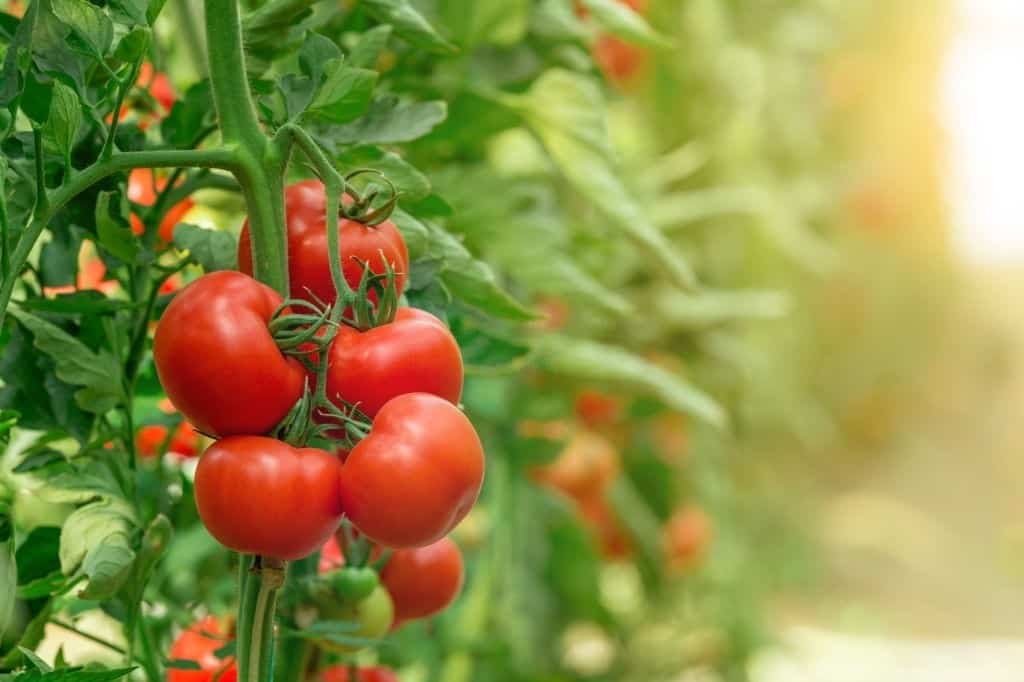When you’re planting tomatoes, you’ll most likely find a lot of advice on what to help supplement your plants. One of them is to add calcium tablets on your tomato plants!
That sounds odd, doesn’t it, as calcium tablets are made for people! Well, a lot of gardeners show how effective it actually is and what it’s done for their own harvest.
So, can you use calcium tablets for tomatoes, or is that just a myth? Read on to find out the truth behind using popular antacid tablets and calcium supplements for your tomato plants!

Can You Use Calcium Tablets For Tomatoes?
Just like us humans, plants require nutrients, and an important one is a calcium. This is one of the six important macronutrients required for healthier plant growth. Plants would consume a lot of calcium from the soil at rapid rates, so you need to replenish the calcium throughout the season.
If your garden soil is deficient in this nutrient, then it can cause your plants’ growing tips to look pale and die. You will know if your plants suffer from calcium deficiency when their leaves begin to yellow and curl on the edges, as well as stunted plant growth and/or blackened shoots.
Besides this, a calcium deficiency can also cause the blossom end rot, which is when sunken dark brown or black spots show on your tomato fruits’ lower ends.
That’s why it’s important to ensure that your soil and plants receive all the calcium it requires. You need to add calcium early, ensuring that your soil’s pH levels are lower than 7.2. You can use garden lime, which is also known as calcium carbonate.
But instead of garden lime, can you use calcium tablets instead?
YES, it’s actually possible! Some people use antacids like Tums, or other calcium supplements, which show positive effects.
The Effects of Calcium Tablets
Calcium tablets come in various molecular combinations for human consumption, including calcium carbonate. When you place crushed calcium carbonate tablets, it would have similar effects to aging garden lime.
However, the disadvantage is how pricey it is compared to garden lime, as calcium supplements don’t come cheap. I recommend you use this only if you have leftover tablets to avoid wasting money. With that said, you can still save a bit if using antacid tablets, which are more affordable than supplements.
If you want to learn more about using calcium tablets for tomatoes, check out this informative video:
How to Use Calcium Tablets For Tomatoes
Now that you’re familiar with the benefits and effects of using calcium tablets for tomatoes, the next question is: How can you apply the calcium tablets well for improved plant health?
It’s best that you follow this method before transplanting your tomato plants. Crush up calcium tablets or antacids and place them in the planting hole before doing so. This will prevent your growing plants from getting blossom end rot.
Another way you can apply calcium tablets is by crushing them up and dissolving them in water. Use a spray bottle to spray it all around your soil and plants.
Take note that when you add calcium carbonate, it would raise your soil’s pH levels. Too much calcium can end up putting your soil’s calcium-to-magnesium ratio off.
So when adding calcium to your soil, do monitor its pH levels and add pH-lowering calcium additives like gypsum or calcium sulfate dihydrate, to retain balance and a good growing environment.
Better yet, perform a soil test before adding the calcium tablets or other supplements, so you know what you need to add for high-quality and nutritious soil.
But Take Note!
While calcium tablets are effective in keeping calcium levels healthy, it may not help in certain situations.
For instance, if your plant is already suffering from the blossom end rot, it may not indicate a calcium deficiency in the soil. Instead, it may show that your plants are unable to properly transport calcium to its soils. Because of this, liming your soil or supplementing it with calcium tablets won’t help.
If this happens, you will need to start hydrating your plants. The blossom end rot may come from lack of watering your plants and the soil. So you’ll need to water your plants even more and avoid drying out your soil, especially if you won pot-grown tomato plants.
Another way you can maintain better moisture levels for your plants is to mulch your garden bed. It’s also still best to sprinkle a few calcium supplements to improve the overall soil quality, but again, be wary with the pH levels.
However, if your plants are still suffering from disease, it may come from excessive levels of nitrogen or root damage. This requires immediate intervention!
Wrapping It Up
You can use calcium tablets on your soil and tomato plants to help them grow well. However, they can be quite expensive, even when using affordable antacids like Tums. With that in mind, I recommend that you keep your plants moist by wearing them regularly, as well as using garden lime when available, which will also ensure better health for your tomato plants.
I hope that this article answered your question, “can you use calcium tablets for tomatoes?” Now that you know what to do for your tomato plants, start investing in the right supplements and nutrients it needs.